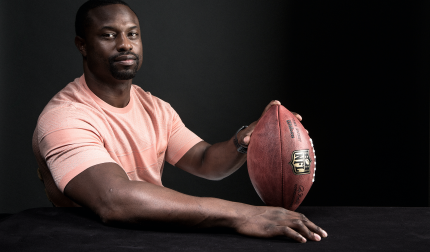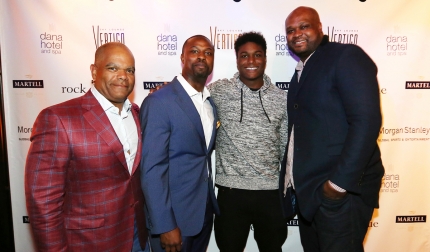Consider thinking about your finances the way you think about your body. As an elite athlete, you know your body better than anyone and the maintenance required to keep it operating at its peak. Your financial life plan is equally as complex. It needs your attention to ensure that it is operating as well as it should.
You wouldn’t have one person handle everything that relates to your body. Your general physician may be the best at what they do, yet you wouldn’t expect that person to repair your ACL. In the same way, one person isn’t going to perfectly arrange all the variables to keep your financial life running at its best. Finance, like health, is a team game. And to put the right professionals in place, you need a game plan. Here are a few things to consider when assembling your team.
What does a great financial advisor do?
To many, having a good financial advisor means having someone that can recommend stocks and bonds to you. A great financial advisor does way more than recommend investments. They want to know how you live your life and what’s important to you. They examine your revenue streams to understand how you earn and provide advice to help you make informed decisions. Athletes and entertainers have very complex financial lives. Most professional incomes are not jeopardized by sudden injury, loss of popularity or even changes in the culture.
Making informed decisions about your money and estate requires a deep knowledge that even the most well-educated and well-intentioned family member may not possess. A great financial advisor will work with you and your tax advisor to help structure your accounts around your goals. In some instances, they are also a gatekeeper for friends and family who approach you with business opportunities that require your investment to get started. Maybe it’s a great idea. Maybe it isn’t. A great financial advisor may be able to help you evaluate situations where you know you should say no, but can’t bring yourself to do it personally.
How do they do it?
They are part of your team. Your agent negotiates your contracts, your CPA handles your taxes and business affairs and your financial advisor works alongside them, advising on your financial strategy, insurance needs, liability issues, and more. They can structure your charitable giving to help maximize the impact it will have on your cause. They can suggest economical ways to help finance home purchases or tuition for those you care most about. No two athletes are the same. Your financial life plan should have customized solutions for your unique lifestyle.
How do I vet a financial advisor?
Take time to get to know someone before you allow them to take on this critical role. Ask them detailed questions to develop trust. How long have they worked in the business? Have they represented clients through difficult markets? If so, how have they handled those situations? Do they have other clients that face similar challenges? The same way a creditor can check your credit history, you can check the background of a financial advisor to see if there have been any issues in the past. FINRA BrokerCheck is an online resource to do this. Confidentiality is also key. If your advisor is telling you about the players he or she represents, chances are they’re going to be telling everyone about you. Unfortunately some financial advisors represent athletes for the wrong reasons. A lack of confidentiality often reveals bad motives.
Once my team is in place, am I set?
Absolutely not! Regardless of how great a dream team you assemble, you need to stay engaged. You should talk to your advisor at least once a month, even if it is by phone and meet face-to-face quarterly or semi-annually. Discuss any changes in your life and how your financial strategy is evolving. And at least once a year, you should sit down and do an extensive detailed review of your finances to ensure that it is succeeding in meeting your goals. You don’t have to be a financial guru. But you should, at the very least, understand the basics of the markets and the types of investments you put your money in. Be comfortable with a financial advisor who will recommend that you don’t do something if it goes against your own plan.
W. Drew Hawkins is the Managing Director and Head of Morgan Stanley Global Sports and Entertainment.
Morgan Stanley Smith Barney LLC, its affiliates and their employees (including Financial Advisors and Private Wealth Advisors) do not provide tax or legal advice. These materials and any statements contained herein should not be construed as tax or legal advice. Individuals should consult their personal tax advisor for matters involving taxation and tax planning and their attorney for matters involving personal trusts and estate planning. CRC1053772 11/14





